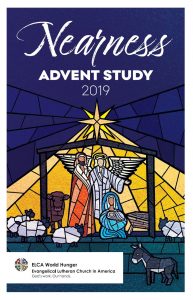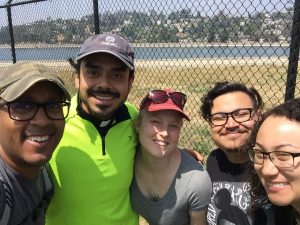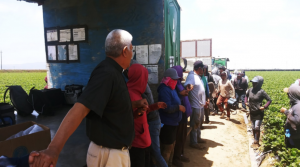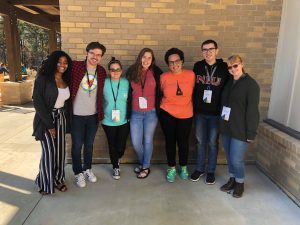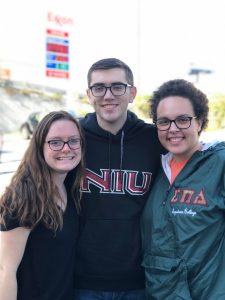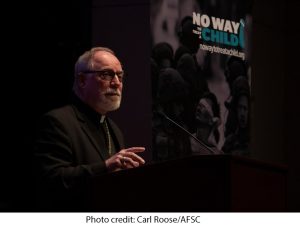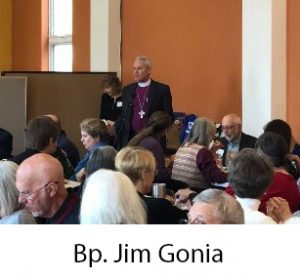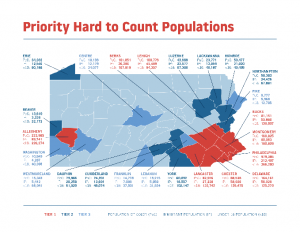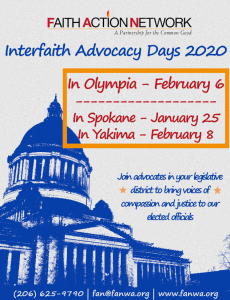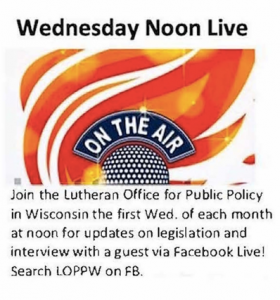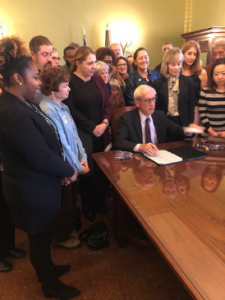This advent reflection is part of ELCA World Hunger’s 2019 Advent Study. You can download the full study here. The children’s messages are a part of ELCA World Hunger’s Sermon Starter series which is published via email every Monday. You can sign up for the weekly email here on the right side of the page.
Week 3
Signs of the Promise
“[John the Baptist’s disciples said to Jesus,] ‘Are you the one who is to come, or are we to wait for another?’ Jesus answered them, ‘Go and tell John what you hear and see: the blind receive their sight, the lame walk, the lepers are cleansed, the deaf hear, the dead are raised, and the poor have good news brought to them’”
(Matthew 11:3-5).
At only 17, Dawit (not his real name) has already faced a long and harrowing journey. He was born in Eritrea, and in 2017, he and his brother escaped lifelong military service by crossing into neighboring Sudan. On the border, they were intercepted by a group of traffickers. Dawit’s brother escaped, but Dawit was held by the traffickers for almost nine months and regularly threatened and beaten while they demanded money.
Eventually, Sudanese police raided the traffickers’ camp and took Dawit to a hospital in Khartoum, where he found his brother again. During their initial journey, Dawit had broken his leg while jumping out of a car. Although he had surgery in Khartoum, it was too late to fully repair the damage to his leg, and he can no longer put any weight on it.
In 2018, Dawit arrived in Cairo, Egypt, and connected with St. Andrew’s Refugee Services (StARS), which is supported by ELCA World Hunger. StARS provided Dawit with a caseworker and helped him meet other immediate needs, such as food, hygiene supplies and, importantly, medical care. StARS also connected him to Doctors Without Borders (Médecins Sans Frontières), which is helping provide Dawit with psychological care and support.
Eritrea, Sudan, Egypt. Dawit’s story, like many of the stories of our siblings in Christ around the world, can seem so far away from communities in North America. Even within our own geographic region, communities can seem farther apart than the miles may suggest. Maybe it is the divide between rural and urban cities, or the gulf between affluent areas and areas facing disinvestment and job loss.
Of course, the distance between our communities belies the reality that, as a global community, we share many of the same challenges. Human trafficking, such as Dawit faced, is “a global phenomenon to which no country is immune,” according to a 2018 report from the U.S. Department of State. And research reminds us that even the most affluent counties in the United States are home to people facing food insecurity and challenges with access to housing.
Yet, it is not merely our shared problems that connect us. This season of Advent, the Scripture readings remind us that, in Christ, God has drawn near to us and to our neighbors. As God draws near to us, we, too, are drawn near to each other — in hope, in faith and in our mutual need.
Seeing this is easier now than it was for the followers of John the Baptist. Jesus was, by no means, the first to be considered (or to declare himself) the Promised One sent by God. So perhaps no one should be surprised that John and his followers were a bit suspicious. “Are we to wait for another?” is the question of those who have long awaited the Messiah — and may likely have been disappointed before. This isn’t the pleading of the psalmist crying, “How long, Lord?” but the cynical question of the skeptic whose faith is sure but whose trust must be earned.
And to some extent, this is our question, too. How do we know that God has drawn near? How can we be certain that the Messiah has come? In our day, we are confronted with promises of salvation from every quarter. Commercials and mass media hold out the pursuit of wealth as the path to new life. Social media seem to suggest that our lives will be transformed once we get enough “likes” or followers. For victims of human trafficking such as Dawit, the promises are more nefarious. Many victims were first lured by their traffickers with promises of resettlement in a new, safe country. Or they were deceived by promises of stable employment.
Jesus understands the skepticism of the question. In response, he shares with John’s followers the evidence he knows will convince the Baptizer: “The blind receive their sight, the lame walk, the lepers are cleansed, the deaf hear, the dead are raised, and the poor have good news brought to them.” Echoing the prophecies of Isaiah, Jesus makes clear the signs of the Messiah’s coming, signs John the Baptist would seem to recognize: healing, restoration and hope. John the Baptist can trust that the one interrogated by his followers is the One sent by God because following in Jesus’ wake are those characteristics of God’s transformation of the world: healing, restoration and hope.
As we look for the promise of God in our midst, we are called to look for those signs of healing (physical and spiritual), restoration (of relationships with God and neighbor), and hope (for those who are poor or vulnerable). Our shared need for each of these is what draws us together with neighbors near and far as we long together for the transformation of the world. And make no mistake, God is with us in our need as well.
We are united in our common need with neighbors around the world. And yet, the miles are bridged by something greater — our shared participation in the promise God is unfolding in our world. The vocation to be a healing, reconciling, hopeful presence in the world is shared across the church universal in every community. United in trust that God is at work transforming the world, the church is called to participate in the signs that inspired the confidence of John and his followers — and inspires the confidence of our neighbors and ourselves today.
To share in the stories of neighbors near and far is to share in the work God is doing through them in the world. It is to seek together — and to be, together — those signs of healing, restoration and hope. In Advent, the expectant longing gives way to bold confidence that God is at work, revealing the promise that all shall be well and drawing us together in mutual need and mutual hope.
There may be much that separates us, but the promise that unites us can bridge any divide.
Reflection Questions
- What experiences have reassured your faith that God is at
work in the world? - Why is it important for the church, as the people of God, to
help neighbors such as Dawit meet their needs for healing
and care? - Where do you see God’s promise taking root in your
community?
Children’s Message
Pastor Tim Brown is the writer of this Advent children’s message. Pr. Tim is a Gifts Officer and Mission Ambassador for the Lutheran School of Theology at Chicago and a pastor and writer out of Raleigh, NC. This Advent Children’s Message is cross-posted from ELCA World Hunger Sermon Starters.
Set-Up:
The season’s texts provide the leader with an opportunity to practice Advent anticipation, and each children’s message with grow week to week until Christmas Eve/Christmas Day.
As with last week, make sure this week’s box includes the smaller box surrounded by Band-Aids, one inside the other, like nesting dolls.
Inside the smallest box should be a pocket mirror. Draw a large yellow star on the outside of this smallest box. On today’s box draw a large red cross on it like an Emergency Aid kit, and tape one of the ELCA Good Gifts cards to the top. You can find them here: http://bit.ly/33gC1kQ.
Script:
Invite the children to come forward.
“Look here, folks, I have that other box here, and I can tell there are things inside of this one, too. How can I tell? Just listen!” Shake the box. “Now, remember what was inside of last week’s box? Right! Stickers. And what did we do with those stickers? Right, we gave them away as gifts of love. What do you think is in this box?” Field answers as time allows. “Could be any of those things! But look, on here is also a red cross. Has anyone seen anything like this before? Where?” Field answers as time allows. “Right. On hospitals and ambulances and first-aid kits.”
“You know, we all have built-in first-aid kits. Want to see one?” Hold up your hands. “Yes, I know, these look just like hands. But they’re more than that. With hands like these we’re given the ability to help and heal others. We can work, and through that work, we can offer help to others. Hmmm…let me try to explain a little clearer. Ah, look, here’s a card near this red cross. Can someone read it?” If the youth are too young or too shy to read, go ahead and read it aloud:
“This is a card from ELCA Good Gifts, where people can buy animals, seeds, or other goods for people all around the world. We work with our hands, and with the money we get for our work, we’re able to buy these gifts to bless others. In this way, we help people who don’t even know to live well! Should we open it and see what’s inside?” Open the box dramatically. If it has a lid, unveil it with panache. If it is sealed in wrapping paper, invite the youth to help you tear it open. Show the box full of Band-Aids, and the other box inside.
“Wow, there’s a bunch of Band-Aids in here, along with another box. This other box we can’t open until next week, I think, but what do we do with these Band-Aids?” Pretend to think.
“Wait, I have an idea! Come in close.” Invite the youth forward and turn off your mic. “Go and give a Band-Aid to someone out there and say to them ‘God helps us help others.’. Make it someone you don’t even know! If they’re brave, they’ll even put it on today! Go and remind them that God invites us to help others, and next week we’ll see if God has a new surprise for us in this other box. Are you ready? Go!”
As they give out the Band-Aids, you can make a general announcement about ELCA Good Gifts to the whole assembly and invite them to learn more by placing a bulletin insert in their hands, or point them to the ELCA World Hunger website.

